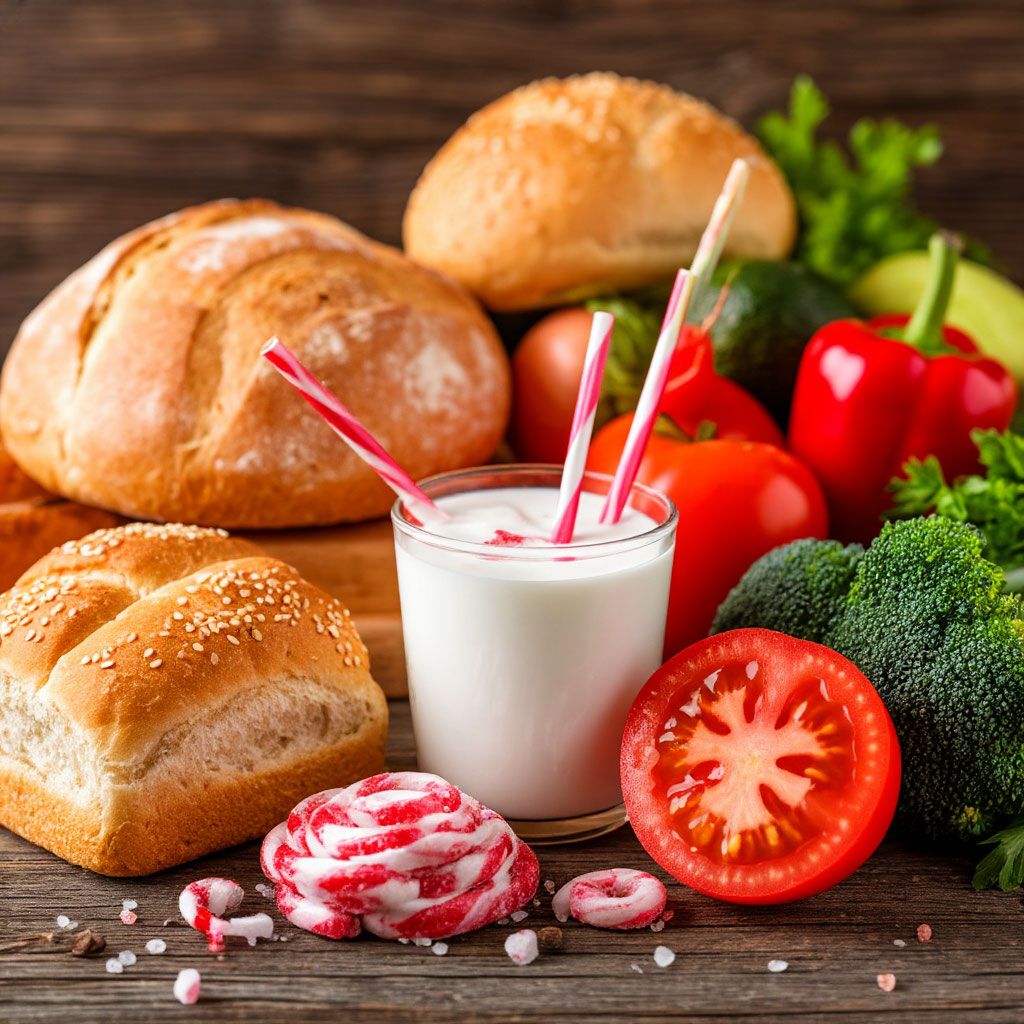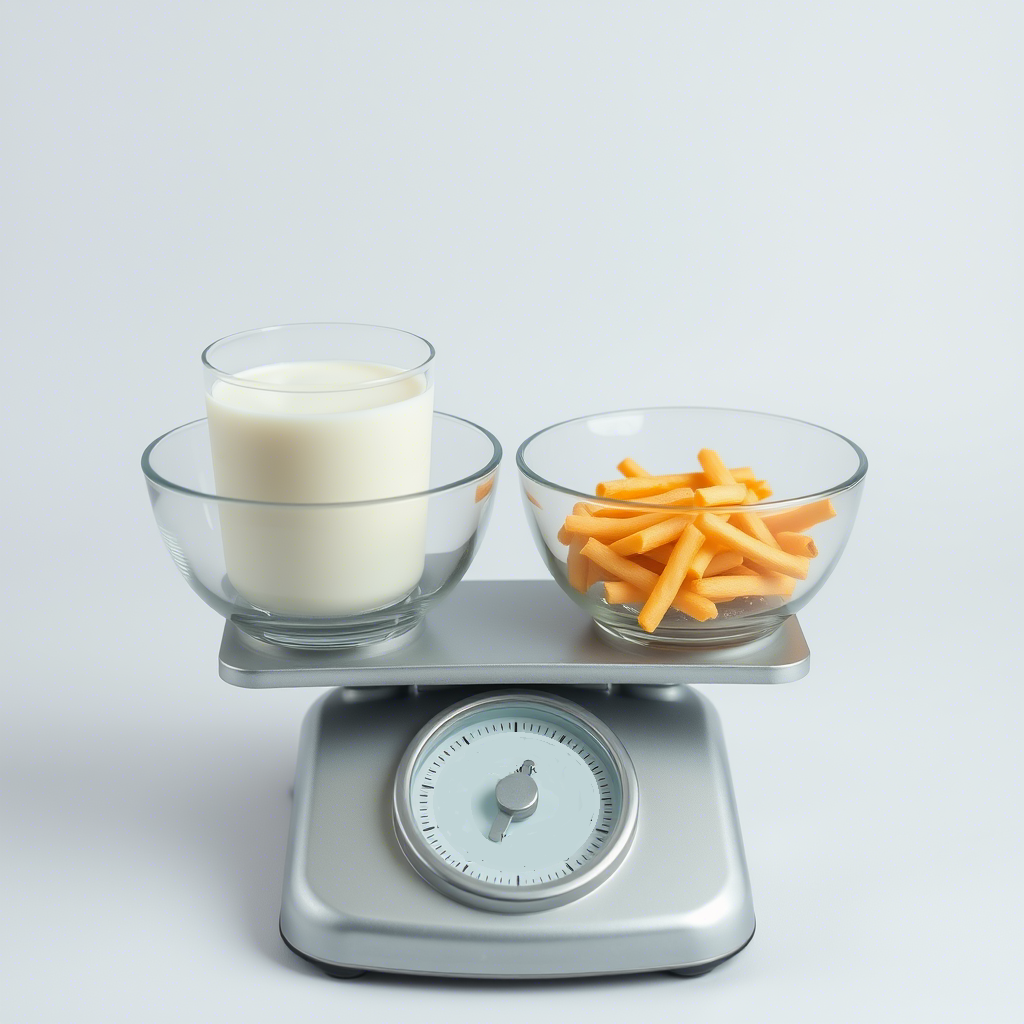
The kefir diet is one of the most popular methods of fast and effective weight loss, based on the use of fermented milk products with low calories and high benefits for digestion.
Such a diet helps not only to get rid of extra pounds, but also to cleanse the body, improve metabolism and intestinal microflora. However, in order for the diet to bring maximum benefits and not harm your health, it is important to follow the rules of its implementation, take into account contraindications and exit it properly. How to safely lose weight on a kefir diet?
We prepared a Beauty Club mini-brochure that outlines safer variants, realistic portion sizes, a balanced sample day, and what to watch out for. You’ll find a PDF download at the end of this article to save and print.
The essence of the kefir diet: how it works and why it helps you lose weight
The kefir diet is not just a fashion trend, but a proven way to lose extra pounds and improve your health. The basis of the diet is natural kefir, rich in probiotics, calcium and easily digestible protein. This drink accelerates the metabolism, removes toxins and gives you a feeling of fullness without extra calories.

Why kefir?
A kefir-based diet is effective due to its complex effect on the body. Fermented milk product normalizes digestion, reduces bloating and reduces cravings for sweets. Thanks to its low caloric content (only 30-50 kcal per 100 ml), it helps to create the energy deficit necessary for weight loss.
How to comply correctly?
Choose high-quality kefir: fresh, without additives, with a fat content of 1-2.5%. A completely fat-free version is not suitable – it lacks some of its useful properties. The optimal duration is from 3 to 7 days, longer options require an extended menu with protein and fiber.

What can and can’t be done?
Allowed:
- Clean water, herbal teas.
- Unsweetened fruits (apples, grapefruits).
- Vegetables with low GI (cucumbers, cabbage).
- Lean meat and fish (in the 7-day version).
Prohibited:
- Sugar, flour, alcohol.
- Fried and fatty dishes.
- Carbonated drinks.
The kefir diet is not a single diet, but a system where the fermented milk product becomes the basis, but not the only component. This approach minimizes stress for the body and increases the chances of a sustainable result.

Suitable for whom?
The technique is recommended for those who want to quickly adjust the figure before an important event or detox after the holidays. However, with chronic diseases of the gastrointestinal tract, high acidity or lactose intolerance, it is better to abandon this method of losing weight.
The kefir diet is an effective but short-term tool for weight loss and cleansing the body. It involves maintaining a balance, carefully monitoring your well-being.
Menu for 3 and 7 days: how to properly make a diet on a kefir diet
The kefir diet offers different options-from express unloading to a more balanced weekly course. The choice depends on your goals and level of training. Try not to turn food into a hunger strike, but to correctly combine a fermented milk product with other components.
Express option for 3 days
This option is suitable for a quick start of weight loss or emergency correction of the figure. The basis of the diet is kefir of 1% fat content, which is supplemented by with one or two products per day:
- The first day – only kefir (1.5 liters, divided into 5-6 servings).
- Second day-fermented milk drink + green apples (3-4 pieces).
- Third day-kefir + boiled chicken breast (200 g).
This mode gives a noticeable result, but requires caution: weakness and dizziness are possible.

Seven-day course for smooth weight loss
The menu for 7 days is more diverse and safer. It includes not only kefir, but also protein products, vegetables, and unsweetened fruits. This allows you to avoid a sharp shortage of nutrients.
Sample diet:
- Breakfast: a glass of kefir + a handful of bran.
- Lunch: 200 ml of fermented milk product + 100 g of baked fish.
- Dinner: kefir + cucumber or celery.
Green tea, an apple, or a handful of berries can serve as snacks.

Important nuances
When making a menu on a kefir diet, take into account individual characteristics. People with an active lifestyle should add more protein – cottage cheese, eggs, turkey. Those who are prone to edema should control their salt intake and drink more water.
How to avoid disruptions?
Strict restrictions often lead to overeating after the course ends. To prevent this from happening, even in the strict three-day version, you can afford a spoonful of honey in the morning or herbal tea with lemon. Light vegetable soups and stewed zucchini are acceptable on the seven-day menu.

Kefir diet is not only about losing weight, but also about cleansing the body. A properly designed menu will enhance the effect and help avoid unpleasant consequences.
Advantages and disadvantages: should I try a kefir diet?
Kefir diet is not a panacea for everyone who wants to lose weight. Like any food system, it has its advantages and disadvantages, which are important to consider before starting. Let’s find out who is suitable for this method, and who is better off looking for an alternative.

Indisputable advantages of the method
An advantage of the kefir-based diet is its high efficiency with minimal time spent. In just a week, you can get rid of 3-5 kg, at the same time cleanse the body of toxins. Fermented milk product improves the intestinal microflora, which has a positive effect on the skin condition and overall well-being.
Another advantage is accessibility. Kefir is relatively inexpensive, it is easy to find in any store. The 7-day menu does not require complex recipes or exotic ingredients, which makes the food system convenient for busy people. The diet is quite satisfying-protein and fats in the composition of the drink help to avoid the painful feeling of hunger.

Hidden pitfalls
Weight loss on kefir has a downside. Harsh diets, especially three-day diets, can cause weakness, headaches, and irritability. A limited diet often leads to a deficiency of vitamins and trace elements, so it is not recommended to adhere to this system for more than a week.
Another disadvantage is possible digestive problems. In people with lactose intolerance or high stomach acidity, kefir can cause bloating, heartburn, or diarrhea. In such cases, consider other options for cleansing the body, such as vegetable or protein diets.

Who will do, and who should refrain?
The kefir diet is ideal for those who want to get in shape quickly before an important event. It is also good after festive feasts, when you need to relieve the digestive system. This method is strictly not recommended for people with chronic gastrointestinal diseases, pregnant and lactating women.
For those who are engaged in sports or physical labor, nutritionists suggest choosing a sparing menu option for 7 days with the addition of protein products. And for office workers with a sedentary lifestyle, a strict three-day course can be a great start to the transition to a healthy diet.
Like any food system, the kefir diet requires a reasonable approach. It can give excellent results in the short term, but is not suitable for long-term use. It remains only to listen to your body and do not forget that sustainable weight loss is possible with a comprehensive approach to nutrition and physical activity.

Who is suitable for the kefir diet: we determine the ideal candidate
The kefir diet is not a universal method for everyone. It brings amazing results to some, while it can harm others. Let’s find out who can get the most out of this system, and who should look for alternative ways to lose weight.
Ideal applicants for a week-long experiment
The kefir diet is suitable for relatively healthy people who urgently need to lose a couple of kilograms. For example, before a vacation or an important event. Those who periodically arrange fasting days on fermented dairy products, adapt to this diet easier than others.

The 7-day menu will appeal especially to those who appreciate simplicity. No need:
- count calories;
- weigh portions;
- prepare complex dishes.
It will be useful to have fresh kefir and a few additional products on hand. This is the best option for busy people who do not have time to create sophisticated dietary programs.
Who should be careful?
People with chronic diseases of the gastrointestinal tract need to approach the kefir diet with special care. Fermented dairy products can cause an exacerbation in the following cases:
- gastritis with high acidity;
- peptic ulcer disease;
- pancreatitis.
In such cases, it is best to consult a gastroenterologist before starting weight loss.

Those who suffer from lactose intolerance are also at risk. Although kefir has a lower milk sugar content than milk, it can still cause unpleasant reactions. To cleanse the body, such people are recommended to use lactose-free analogues or vegetable detox programs.
Absolute contraindications: when is it better to give up
There are categories for which a kefir diet is strongly discouraged:
- Pregnant and lactating women need a full-fledged diet — restrictive practices not only themselves, but also their child.
- Teenagers in the period of active growth should not experiment with such methods.
- People with eating disorders should avoid any strict restrictions.
A kefir diet can worsen the problem and provoke a new round of uncontrolled overeating. In such cases, it is better to pay attention to a balanced diet under the supervision of a specialist.
Optimal conditions for use
The greatest benefit of the kefir diet will bring in three main cases::
- As an express method before an important event, when you need to quickly get in shape.
- After food excesses — festive feasts or vacations.
- For those who want to take the first step towards switching to a healthy diet.
There are situations when this approach will be ineffective. With chronic fatigue or stress, strict restrictions can worsen the condition. If the goal is not just to lose weight, but to build muscle mass, it is better to choose a protein-carbohydrate nutrition system.

The kefir diet is an effective tool, but you need to use it wisely. Before you start, you should soberly assess the state of health and the real needs of the body. After all, the main thing in losing weight is not speed, but the stability of the result and good health.
Results and reviews: what to expect from the kefir diet?
The kefir diet has collected thousands of rave reviews, but criticism of it sounds regularly. What real results can be achieved in a week?

Expected weight loss indicators
Practice shows that the kefir diet gives different results depending on the initial parameters. People with a lot of excess weight lose up to 5-7 kg in a week, while those who need to lose only 2-3 kg can see minus 1.5-2 kg on the scales. It is important to understand that the first kilograms that are lost are mainly water and intestinal contents, and not adipose tissue.
The body’s detox process is noticeably faster than with other food systems. Already on the third day, many celebrate:
- ease of use;
- reducing bloating;
- improve your complexion.
These changes are especially pleasing to those who have long dreamed of getting rid of the feeling of heaviness after eating.
Real stories: delight and disappointment
Reviews about losing weight on kefir are diametrically opposed. Some call the menu for 7 days a salvation after festive overeating, others complain of a constant feeling of hunger and dizziness. The difference in perception often depends on proper preparation and attitude.
Those who have previously reduced portions and reduced the amount of sugar in the diet, tolerate a kefir diet much easier. Their feedback is enthusiastic: ‘I lost 4 kg of weight in a week, my skin was cleansed, I got energy.’ But a sharp transition from a normal diet to strict restrictions can really cause discomfort.

Why are the results different for everyone?
The effectiveness of the kefir diet depends on many factors:
- the age group;
- physical activity level;
- the metabolic rate.
Women after 40 often note that the weight goes away more slowly than in their youth, but the bowel function improves.
Those who combined the diet with moderate exercise had a more pronounced effect. Strength training during such a diet can lead to loss of muscle mass, so professional athletes should choose a different method of weight loss.
How do I save my progress?
Most of the negative reviews are not related to the kefir diet itself, but to the wrong way out of it. A sharp return to the usual diet negates all efforts. Those who gradually expanded the diet and those who continued to drink kefir were able to maintain the result for 2-3 months.
Interestingly, many people change their eating habits after such an experience. Cleansing the body becomes an impetus for the transition to a healthier diet. Some people introduce kefir into a regular diet, replacing them with late dinners or harmful snacks.
Judging by the reviews, the kefir diet works, but requires the right approach. This is not a magic pill, but a tool that needs to be used wisely. Those who want to not only lose weight, but also improve their health, should consider a gentle option with the addition of vegetables and proteins. Strict mono-diets are best reserved for emergencies.

Tips for getting out of the kefir diet: how to save the result
The kefir diet has borne fruit — the weight has decreased, the state of health has improved. But right now comes the most crucial moment. The wrong way out will negate all efforts, and a competent approach will help to consolidate success for a long time. How to return to the usual diet without harm to the figure?
Why is the transition period so important?
After a restrictive diet, the body is in a special state. The metabolism is slowed down, the digestive system is not used to heavy food. A sharp load will lead not only to the return of kilograms, but also to possible problems with the gastrointestinal tract. The kefir diet requires a smooth exit — at least half of its duration.
Those who neglect this rule often face swelling and rapid weight gain. Cleansing the body will be in vain if you immediately pounce on prohibited products. Gradualness is the main principle of successful completion of a weight loss program.

Gradual return to the usual diet
For the first three days after the 7-day menu, you should stick to a light protein-vegetable diet. For breakfast, cottage cheese with herbs is ideal, for lunch-boiled fish with stewed zucchini. Kefir still remains in the diet, but not as a main dish, but as a healthy snack or supplement.
From the fourth day, you can enter complex carbohydrates — buckwheat, oatmeal, brown rice. Portions should be small and the intervals between meals should be regular. This approach will help you avoid spikes in blood sugar and sudden bouts of hunger.
What foods should you avoid?
Even a week after completing the kefir diet, you should not get carried away with three categories of food. Flour products and sweets provoke sharp weight fluctuations. Smoked meats and pickles retain water, the effect of cleansing the body becomes less pronounced. Alcohol is not only high in calories, but also increases appetite, making it difficult to control portions.
Particular attention should be paid to the fact that in the first days it is better to undersalt the dishes. This will help maintain the water balance and prevent the appearance of edema. Gradually, you can return the usual amount of spices, but do it consciously.

How to maintain your metabolism?
So that weight loss does not stop, it is important to activate the metabolism:
- Fractional meals in small portions 5-6 times a day is an excellent solution.
- Do not forget about water-1.5-2 liters a day help to remove toxins.
- Light physical activity will speed up the process — even regular walks will have a noticeable effect.
Those who want to consolidate the result for a long time can arrange one kefir day a week. This will not only support the weight, but also continue the process of cleansing the body. The main thing is not to turn such days into stress, but to perceive them as part of a healthy lifestyle.
After leaving the kefir diet, many people notice an interesting effect — taste habits change. What seemed delicious before may now seem cloying or too greasy. This is a great time to switch to a healthier diet.
Including fermented dairy products in a regular diet is a smart decision. A glass of kefir before going to bed will improve digestion, and cottage cheese breakfasts will provide a long feeling of satiety. Such changes will help not only to save the result, but also to continue improving the figure.
Short-term only, with protein, vegetables and hydration — then refeed gradually back to balanced plates.
Download the brochure (PDF): Beauty Club — Kefir Diet: Safe Weight-Loss Guide



